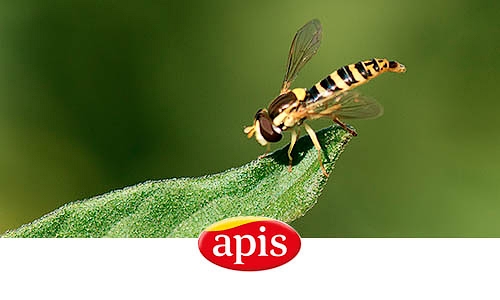Respect for your privacy is our priority
The cookie is a small information file stored in your browser each time you visit our web page.Cookies are useful because they record the history of your activity on our web page. Thus, when you return to the page, it identifies you and configures its content based on your browsing habits, your identity and your preferences.
You may accept cookies or refuse, block or delete cookies, at your convenience. To do this, you can choose from one of the options available on this window or even and if necessary, by configuring your browser.
If you refuse cookies, we can not guarantee the proper functioning of the various features of our web page.
For more information, please read the COOKIES INFORMATION section on our web page.


 On this point, the expert entomologist in charge of the project has explained that the hedges and uncultivated areas are seeded with indigenous species of flowers that have already been studied, evaluated and selected "as being attractive to pollinating insects and predators of the main insect pests that damage crops [of processing tomatoes]." The aim is to "create biodiversity reservoirs where these desirable species can proliferate and improve the quality of pollination, which in turn will increase the quality of the fruit and the productivity of crops."
On this point, the expert entomologist in charge of the project has explained that the hedges and uncultivated areas are seeded with indigenous species of flowers that have already been studied, evaluated and selected "as being attractive to pollinating insects and predators of the main insect pests that damage crops [of processing tomatoes]." The aim is to "create biodiversity reservoirs where these desirable species can proliferate and improve the quality of pollination, which in turn will increase the quality of the fruit and the productivity of crops." 





























